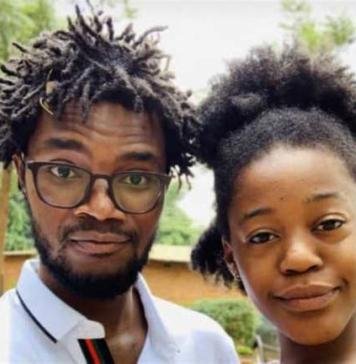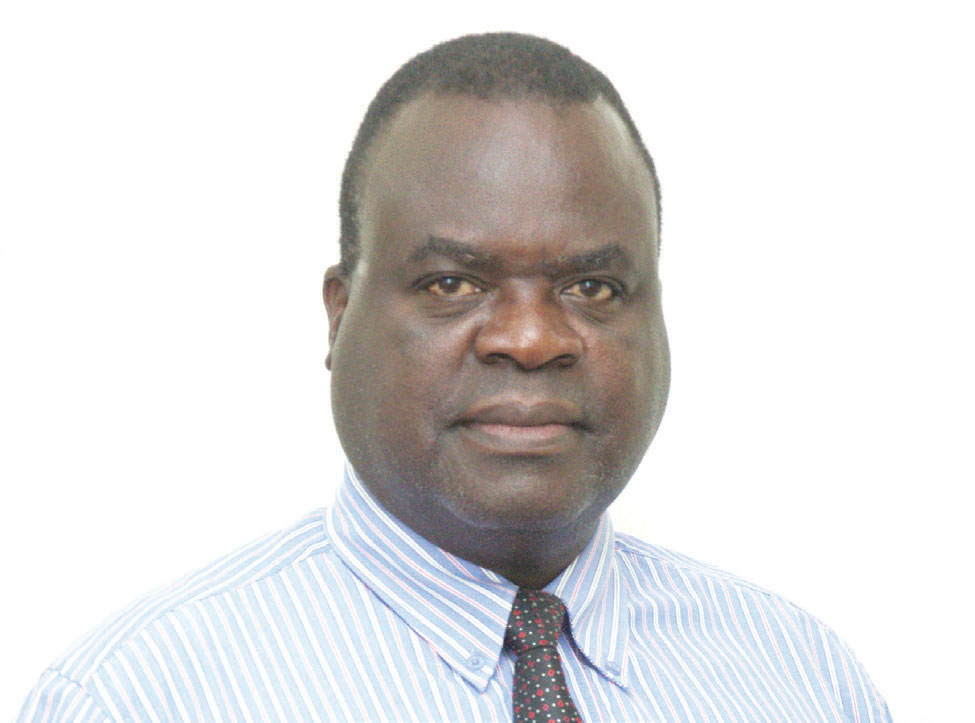By Durell Namasani
Malawi’s only Pathologist Dr Charles Dzamalawi who a week ago was found guilty by Medical Council of Malawi over the questionable results of his forensic test on the late Kotana Chidyaonga has hit back. In a press statement , Dzamalala says he has instructed his lawyers to appeal the Verdict
The full statement reads:
I, Dr Charles Dzamalala, wish to inform the general public that I have instructed my lawyers, Naphambo and
Company, to appeal against the Medical Council of Malawi (MCM) Board’s determination on the case of the
forensic autopsy report of late Kottana Chidyaonga which I produced on 13th January, 2020 and which was the
basis for a court process in August, 2020. Since the MCM Board’s determination on this case, there has been a
media frenzy and multiple sources of misinformation. This press statement is aimed at addressing these issues.
Brief Background
I hold the following academic and professional qualifications-
Bachelor of Medical Sciences (BMedSci) from St Andrews University in Scotland in 1989.
Bachelor of Medicine and Bachelor of Surgery degree (MBBS) from the Universities of London and Malawi
(College of Medicine) obtained in 1993.
Masters’ Degree in Anatomic Pathology (M. Med. Path).from Makerere University in Uganda obtained in
1999. This training includes exposure to Forensic Pathology.
Masters’ Degree in Forensic Medicine and Forensic Pathology [MForensMed (Monash)] from Victorian
Institute of Forensic Medicine, Monash University in Melbourne Australia in 2013.
Founding Member of both The College of Pathologists of East Central and Southern Africa: FCPath (ECSA)
and the African Society of Forensic Medicine (ASFM).
I have over twenty two years of experience in Forensic Autopsy/Pathology cases in several countries
including, Uganda, Australia and some neighboring countries. Within Malawi I have conducted many autopsy
cases, including the majority of high profile cases. Some of these cases have gone passed through the courts.
I have never been accused of corruption; rather I stand for the truth.

Case of Kottana Chidyaonga
I still stand by the said forensic autopsy report that the death of late Kottana Chidyaonga was due to toxicity as a
result of aldicarb (termik) poisoning. The autopsy features in the body of late Kottana Chidyaonga were generally
those of toxicity. In particular the stomach which bore the brunt of the visible effects of toxicity demonstrated
patches of mucosal erosions and haemorrhages consistent with close contact with a toxic substance. This finding
indicated that the toxic substance entered the body through the ORAL route (mouth); it was ingested. Laboratory
testing of collected body fluids and tissue specimens confirmed the finding of aldicarb in the tissue and fluid
specimens. The history of events leading up to the time of death did not dispute death by termik poisoning. Termik
kills. The specific timing depends on a number of things; including amount of ingested termik, individual’s body
weight and contents in the stomach such as amount and type of food which may influence absorption rates. These
factors also influence the timing of symptoms and signs the patient presents with. Deaths therefore may occur
within minutes or after a few hours.
Laboratory Testing for Toxic Substances
In Malawi there is only one registered laboratory that reliably screens for toxic substances; the Malawi
Government’s Central Veterinary Laboratory (CVL) in Lilongwe. The effectiveness of toxicity screening by this
laboratory has over the years been compared with some similar laboratories in the United Kingdom and Republic
of South Africa. Such comparisons have been favourable. There are several examples, on record, of high profile suspected poisoning cases where the results of poison screening by CVL have been similar to those received from
analyses by United Kingdom and South African laboratories. I and other local pathologists have used and continue
to use the CVL for toxic substances screening.
The CVL uses thin layer chromatography (TLC) screening method for toxic substances. When present in the
specimen under investigation, each group of the toxic substances produces a registrable spike which is then
compared to available known laboratory standards to identify the specific toxic substance. In the Kottana
Chidyaonga case there was one recorded spike which by comparison with laboratory standards was identified as
termik. Had there been two or three spikes, the challenge would have been to identify what each spike represented.
In this case there was one spike which was that due to the presence of termik in the tested samples. Body tissue
samples from this case were kept for any further testing, within or outside Malawi, in the event that the court so
determined prior to the conclusion of the court case. These samples are still available and may be used by any
contending parties for testing a preferred laboratory or laboratories outside Malawi. The Medical Council of
Malawi was informed about this at the hearing that took place at Lilongwe Hotel.
Court judgement assumptions
I am aware of and surprised by the assumption of members of the general public, including some self-appointed
social commentators that the accused persons in this case were acquitted because of a wrongful cause of death.
The High Court judgement which was also sustained by the Supreme Court of Appeal was based on three issues.
The State failed to prove who of the four accused persons administered the poison; where and when the poison
was administered. These are not issues which a pathologist performing an autopsy anywhere in the world is
expected to investigate and answer. There are State Officers whose duty is to perform these functions. The Courts
did not mention the cause of death and did not say termik was not the cause of death either.
Why Appeal
Through my lawyers I am appealing against the determination by the Medical Council of Malawi Board. This
appeal will be based on the following:-
The Medical Council is body which is charged with overseeing evidence based practice of medicine in
Malawi. The honorable and learned members of the Medical Council Board have however made a
determination that the cause of death was not termik but vecuronium bromide. They have not provided
any laboratory backed scientific evidence on which this conclusion is based. Which laboratory provided
results of a lethal body tissue or body fluid level of vecuronium bromide? Why did they not share these
results with me or the public? There is no evidence that the Board sent any of the preserved tissue samples
from this case for laboratory testing; yet they were informed of the existence of such samples. This
determination is therefore based on assumptions; it is not supported by evidence based knowledge.
In the communication to me the Medical Council of Malawi Board indicated that snake venom and
vecuronium bromide were the most likely contributors to the cause of death of late Kottana Chidyaonga.
In medical practice, death certification includes the mode and cause of death. Contributors are listed but
are not the cause of death. The contributors are the ones I am being accused of not testing for. To illustrate
this concept; I would provide as follows: The Board has not made it clear what the findings that I did not
test for were contributing to. One could compare this with the Shire River which drains water out of Lake
Malawi. In some low lying areas some water leaves the Shire and flows into the adjacent land. They
however don’t make it on the answer for what drains Lake Malawi.
The Medical Council Board refers to performance which is contrary to expected standards of forensic
autopsy practice. I am not aware of any such reference standards which the Medical Council has
developed, copied or edited and distributed to its members; and specifically for performance of forensic autopsies. The Council has been in place since 1987. The autopsy reporting forms, for example date back
to 1950s; the Council has said and done nothing about them. How does a country pretend to have a
standard of practice when they have not set up a standard for infrastructure, equipment and personnel
qualifications?
I also contend the unfair representation in the composition of those called upon to make the determination.
I take note that medicine has many specialized areas requiring that in investigations of this nature accused
persons be fairly represented by their peers. Who are the peers for a Forensic pathologist? Do you assign
a four years practicing professional colleague to adjudicate in a case where the accused has over twenty
years of practice, and who may even have trained the adjudicator? If there were no representative jury
members, did Medical Council Board seek the opinion from outside their home?

Specific appeal
Through my lawyers, I am appealing to the High Court. I am praying for the High Court to:-
Order the Medical Council of Malawi Board to provide laboratory backed scientific evidence that I was
wrong in reporting that late Kottana Chidyaonga died as a result of termik poisoning; that the Board has
evidence-based cause of death; a lethal dose of vecuronium bromide or snake venom or both and that there
was no termik in the body tissues. That such evidence is backed by laboratory testing of preserved/stored
laboratory tissue specimens from the deceased, which were brought to their knowledge at the Lilongwe Hotel
hearing.
Set up a system that will facilitate a transparent way in which the available tissue samples will be taken to a
laboratory or laboratories outside Malawi for testing for venom, aldicarb and lethal levels of vecuronium
bromide.
Order the Medical Council of Malawi Board to pend the issuance of the warning, until the determination of
the appeal.
Set aside the determination of the case by the Medical Council of Malawi Board.


